Home

How to Get Pregnant with Ovarian Cysts: Unlocking Parenthood
In this Article

Getting Pregnant
How to Get Pregnant with Ovarian Cysts: Unlocking Parenthood
Updated on 29 September 2023



Medically Reviewed by
Dr. Shruti Tanwar
C-section & gynae problems - MBBS| MS (OBS & Gynae)
View Profile

Are you struggling with ovarian cysts and wondering if it's still possible for you to get pregnant? Ovarian cysts are a common condition that can make conception a bit more challenging, but it doesn't necessarily mean you can't achieve parenthood.
In this article, we're going to delve into the topic of how to get pregnant with ovarian cysts and provide you with some valuable tips and insights. We'll explore the signs of ovarian cysts, the different types to be aware of, and how understanding them can help you find the right treatment. So, let's unlock the possibilities of parenthood together!
What are Ovarian Cysts?
Ovarian cysts are fluid-filled sacs that form on the ovaries. They are common and usually harmless, often disappearing on their own without any symptoms or complications. Ovarian cysts can vary in size, ranging from as small as a pea to as large as a grapefruit. While most ovarian cysts are functional and not a cause for concern, there are other types that can be more problematic.
Types of Ovarian Cysts
There are several types of ovarian cysts, each with its own characteristics and potential impact on fertility.
1. Follicular cysts
These cysts form when a follicle on the ovary fails to release an egg. They are usually harmless and resolve on their own within a few menstrual cycles.
2. Corpus luteum cysts
These cysts develop when the follicle releases an egg but does not dissolve as it should. They can cause pain and may need medical intervention if they become large or cause bleeding.
3. Endometriomas
These cysts form when endometrial tissue (the tissue that lines the uterus) grows outside the uterus and attaches to the ovary. They can be associated with conditions such as endometriosis and may require surgical removal.
4. Dermoid cysts
These cysts are formed from cells that produce human eggs. They can contain tissues such as hair, skin, and teeth. Dermoid cysts are typically benign but may require surgical removal if they cause symptoms.
5. Cystadenomas
These cysts develop from cells on the outer surface of the ovary. They can be filled with fluid or mucus and may need surgical removal if large or causing discomfort.
6. Polycystic ovaries
This condition is characterized by the presence of multiple small cysts on the ovaries. It is associated with hormonal imbalances and can affect fertility.
Understanding the different types of ovarian cysts is crucial for those looking to conceive while dealing with ovarian cysts. Proper diagnosis and treatment can help increase the chances of conception.
You may also like : Hysteroscopy: Everything You Need to Know About This Minimally Invasive Procedure
Can Ovarian Cyst Cause Infertility?
Many women wonder can I get pregnant with ovarian cyst. The impact of ovarian cysts on fertility can vary depending on the type and size of the cyst. In most cases, small functional cysts do not interfere with a woman's ability to conceive.
However, larger cysts or certain types of cysts, such as endometriomas, can affect fertility. These cysts can cause inflammation and scarring in the reproductive organs, leading to difficulty in getting pregnant. Additionally, if a cyst ruptures, it can cause pain and potentially damage the ovary, further impacting fertility.
How to Get Pregnant with Ovarian Cysts?
Despite some challenges in conception, it’s possible to conceive with ovarian cysts. However, it is generally recommended for women to seek treatment for ovarian cysts before getting pregnant. This is because a pregnancy with ovarian cysts comes with its own fair share of risks and complications.
Let us now discuss some treatment options for ovarian cysts including surgical removal of ovarian cysts, ayurvedic medicine for ovarian cyst as well as ovarian cyst treatment in homeopathy.
1. Ovarian Cyst Removal Surgery
In some cases, the best approach to getting pregnant with ovarian cysts is to have the cysts surgically removed. This is particularly true for larger cysts or those that are causing significant pain or other complications.
The surgery, known as an ovarian cystectomy, involves removing the cyst while preserving the healthy tissue of the ovary. The success of the surgery in improving fertility depends on the type and size of the cyst, as well as any underlying factors that may be contributing to infertility. It is essential to consult with a fertility specialist or gynecologist to determine if this is the right option for you.
2. Ayurvedic Treatment for Ovarian Cyst
Ayurveda, an ancient Indian system of medicine, offers holistic approaches to treating ovarian cysts and improving fertility. Ayurvedic treatments focus on balancing the body and mind to promote overall well-being. Herbal remedies, dietary changes, and lifestyle modifications are commonly recommended in Ayurvedic medicine for ovarian cysts.
Some Ayurvedic herbs, such as Ashoka, Shatavari, and Lodhra, are believed to have properties that can help regulate menstrual cycles and reduce the size of cysts. However, it is important to consult with a qualified Ayurvedic practitioner before starting any treatment.
3. Ovarian Cyst Treatment in Homeopathy
Homeopathy is another alternative treatment option for ovarian cysts. Homeopathic remedies are individualized based on a person's unique symptoms and constitutional makeup. Some commonly used homeopathic medicines for ovarian cysts include Apis mellifica, Lachesis, and Sepia.
These remedies are believed to help reduce pain, inflammation, and hormonal imbalances associated with ovarian cysts. However, as with any alternative medicine, it is crucial to consult with a qualified homeopath to ensure safe and effective treatment.
FAQs
1. Can I get pregnant with ovarian cyst?
In most cases, having ovarian cysts does not prevent a woman from getting pregnant. However, certain types of cysts or larger cysts can interfere with fertility.
2. How soon after ovarian cyst removal can I get pregnant?
The timing of pregnancy after ovarian cyst removal can vary depending on the individual, the type of cycts and the specific circumstances. In some cases, a woman may be able to conceive as soon as the cyst is removed. In other cases, some cysts may even cause infertility like endometriomas while some may not.
3. Can ovarian cyst removal surgery affect my fertility?
Ovarian cyst removal surgery, when performed by a skilled surgeon, should not negatively impact fertility. In fact, removing certain types of cysts can improve fertility by resolving any underlying issues.
4. Is it safe to get pregnant with ovarian cysts?
In general, it is safe to get pregnant with ovarian cysts, especially if they are small and do not cause any complications. However, it is important to have regular check-ups with a healthcare professional throughout the pregnancy to monitor the cysts and ensure they do not pose any risks to you or the baby.
Final Thoughts
While ovarian cysts can present challenges when trying to conceive, there are various treatment options available to increase the chances of getting pregnant. Whether through surgical intervention, Ayurvedic remedies, or homeopathic treatments, it is important to work closely with healthcare professionals to determine how to get pregnant with ovarian cysts. Remember, every woman's journey to parenthood is unique, and with the right guidance and support, it is possible to overcome the obstacles posed by ovarian cysts and unlock the joy of parenthood.
References
1. Mobeen S, Apostol R. Ovarian Cyst. (2022). In: StatPearls [Internet]. Treasure Island (FL): StatPearls Publishing
2. Farghaly SA. (2014). Current diagnosis and management of ovarian cysts. Clin Exp Obstet Gynecol.
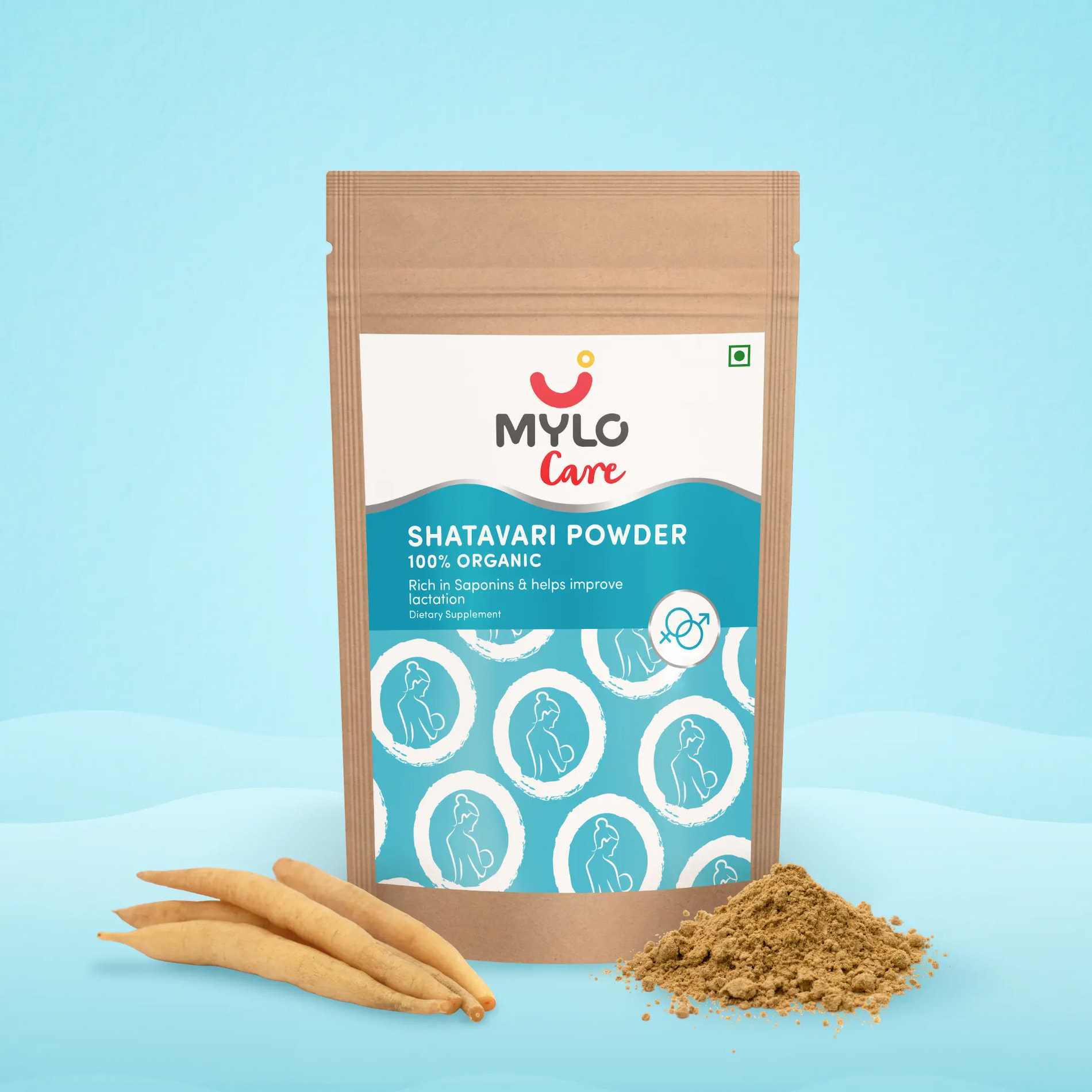
Shatavari Powder - 100 gm
Improves Lactation | Promotes Hormonal Balance | Relieves Stress & Anxiety | Clinically Tested
₹ 215

4.1
(1166)


6999 Users bought





Medically Reviewed by
Dr. Shruti Tanwar
C-section & gynae problems - MBBS| MS (OBS & Gynae)
View Profile


Written by
Anupama Chadha
Anupama Chadha, born and raised in Delhi is a content writer who has written extensively for industries such as HR, Healthcare, Finance, Retail and Tech.
Read MoreGet baby's diet chart, and growth tips

Related Articles
Related Questions
Influenza and boostrix injection kisiko laga hai kya 8 month pregnancy me and q lagta hai ye plz reply me

Hai.... My last period was in feb 24. I tested in 40 th day morning 3:30 .. That is faint line .. I conculed mylo thz app also.... And I asked tha dr wait for 3 to 5 days ... Im also waiting ... Then I test today 4:15 test is sooooo faint ... And I feel in ma body no pregnancy symptoms. What can I do .

Baby kicks KB Marta hai Plz tell mi

PCOD kya hota hai

How to detect pcos

RECENTLY PUBLISHED ARTICLES
our most recent articles
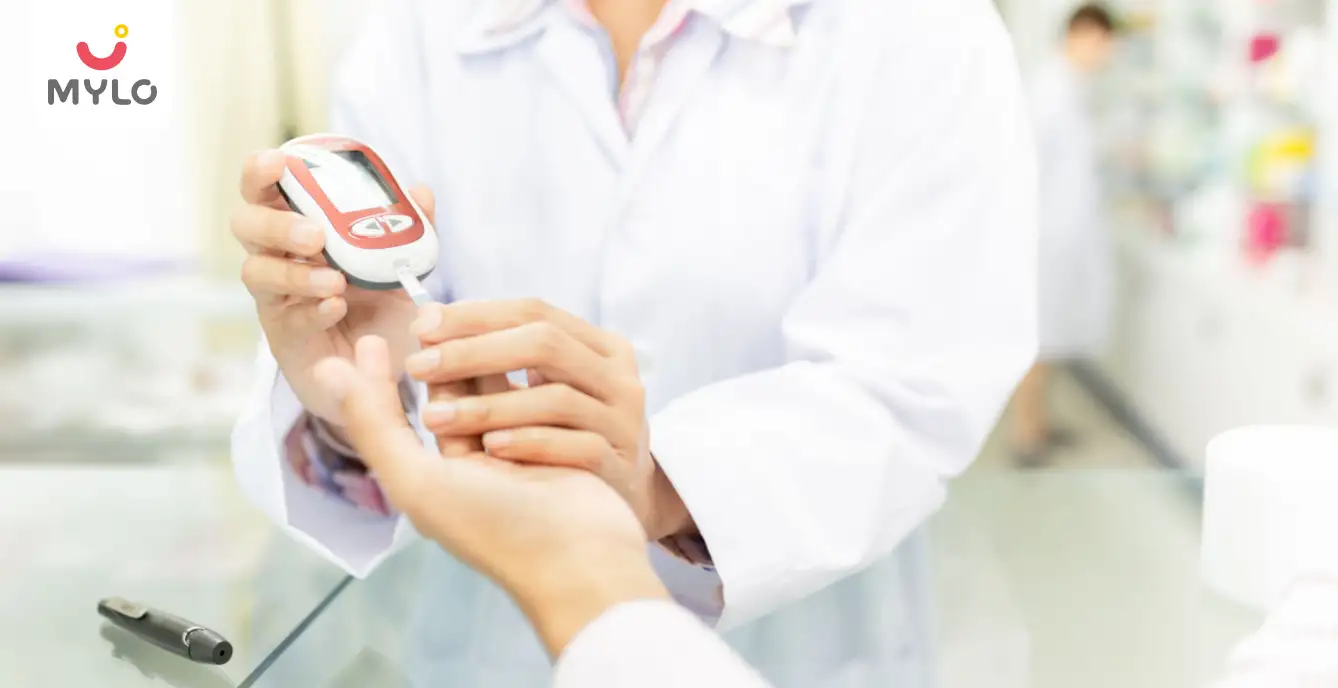
Fertility Problems
Can a Diabetic Woman Get Pregnant: Exploring the Facts and Myths
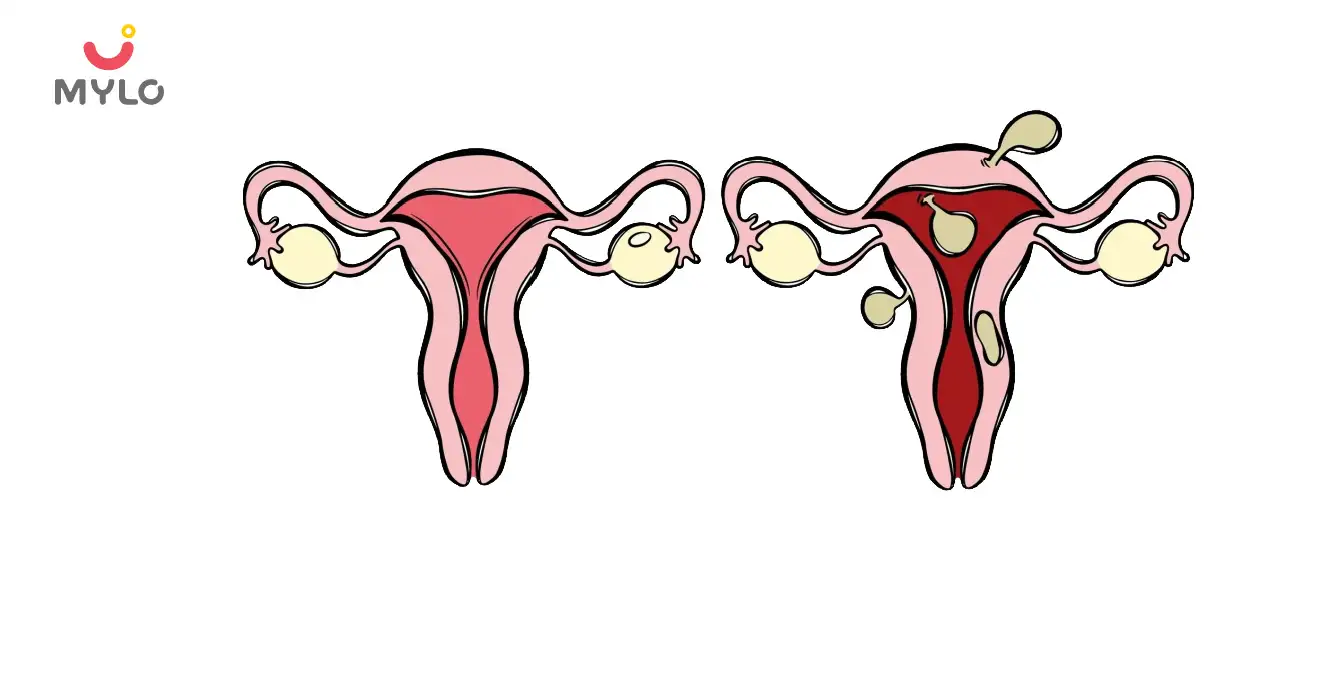
Women Specific Issues
Bulky Uterus with Fibroids: Understanding Causes, Symptoms, and Treatment Options
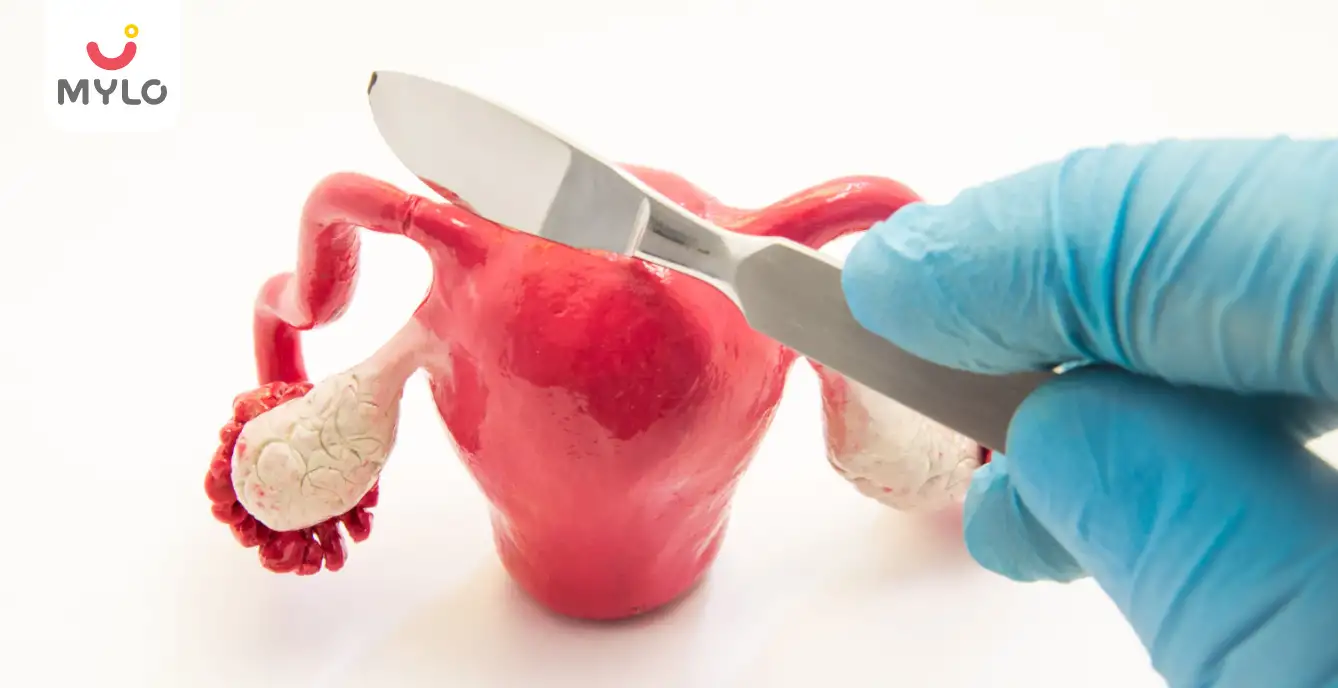
Medical Procedures
Tubal Recanalization: How This Procedure Can Help Restore Your Fertility
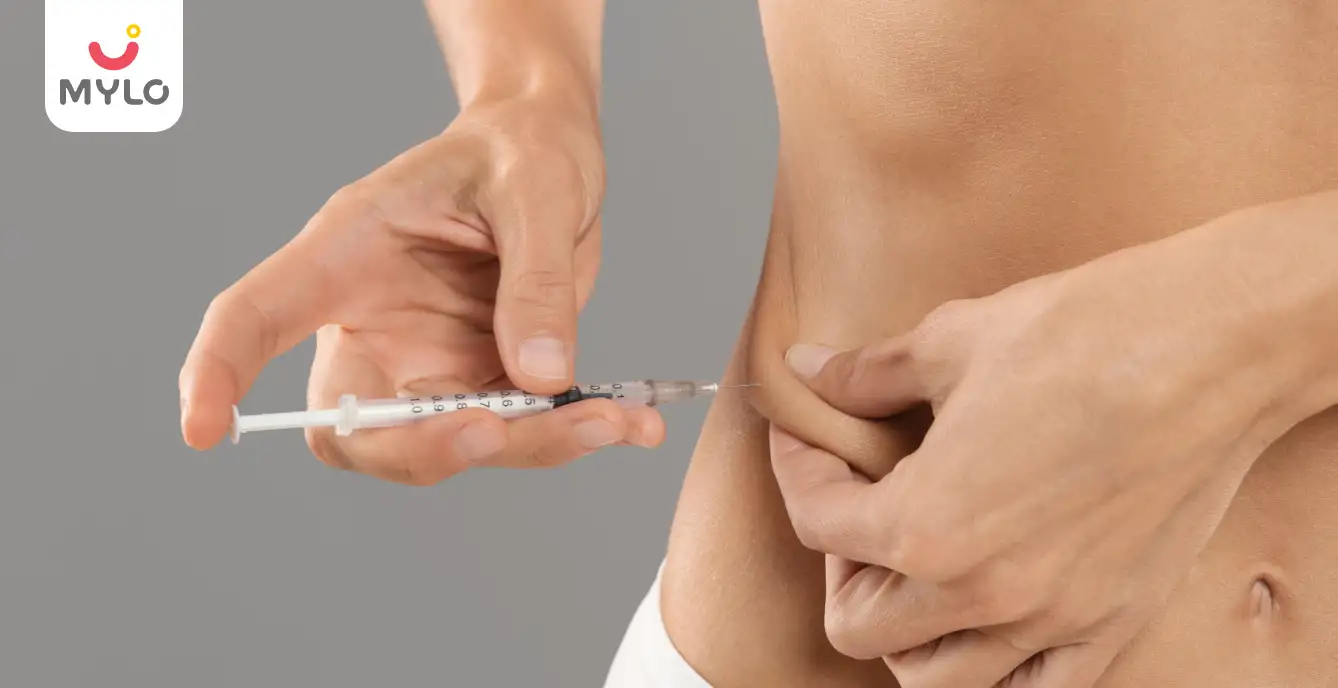
Hormones
Are FSH (Urofollitropin) Injections an Effective and Safe Fertility Treatment For You?
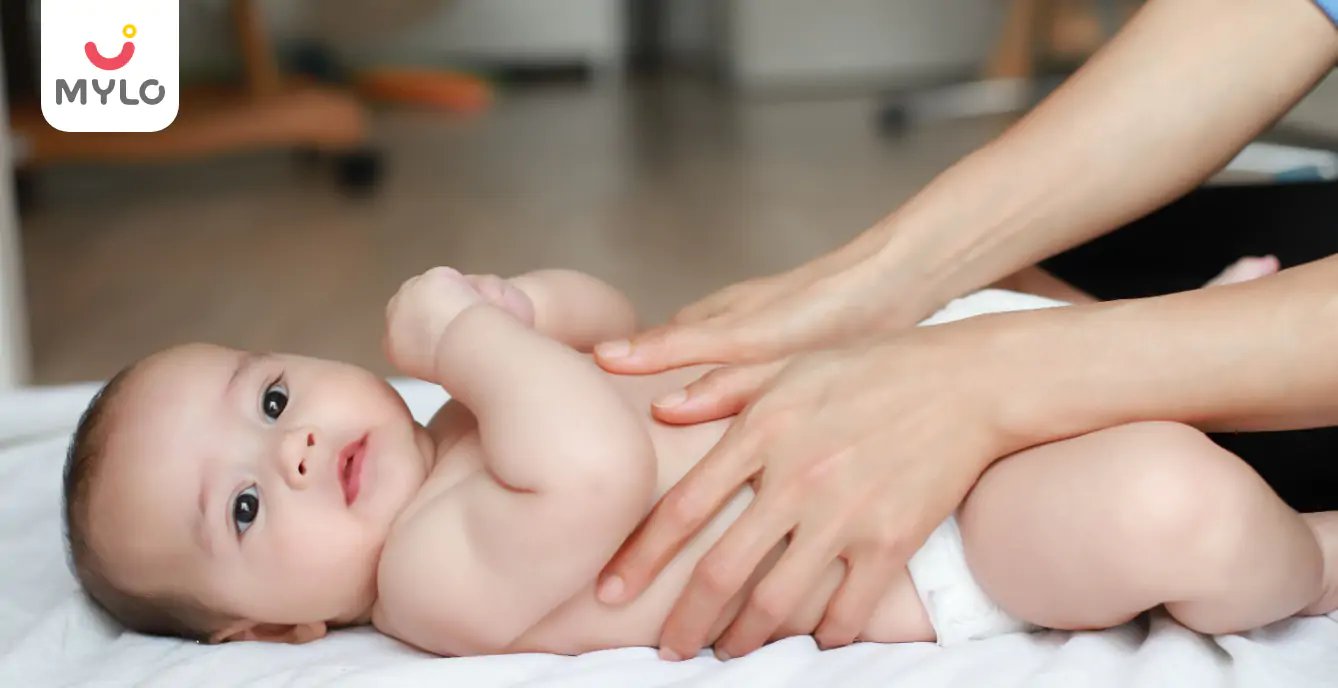
Baby Massage
The Ultimate Guide to Choosing a Baby Massage Oil for Summer
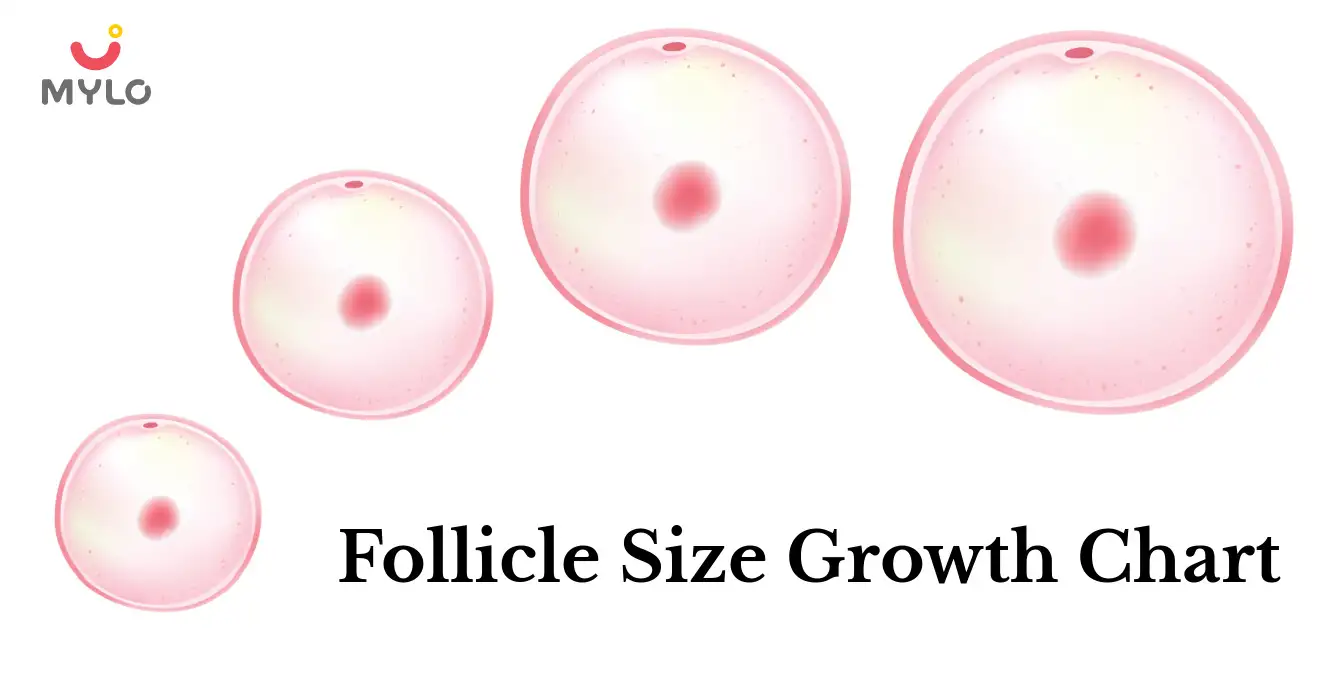
Reproductive health
The Ultimate Guide to Understanding a Follicle Size Growth Chart
- Fruits for PCOS: Your Guide to Making Healthy Choices
- Is Milk Good for PCOS: Exploring the Dairy Dilemma
- The Ultimate Guide to Using Ashokarishta for PCOS
- PCOS Pain: The Ultimate Guide to Causes and Effective Management
- 10 Best Mystery Books to Read in 2023
- 10 Best Non-Fiction Books to Read in 2023
- Is Ghee Good for PCOS: The Ultimate Guide to Benefits and Ways to Consume
- Is Curd Good for PCOS: The Ultimate Guide to Debunking Myths and Discovering Benefits
- Dark Chocolate for PCOS: Unlocking the Potential of a Guilt-Free Indulgence
- Beetroot for PCOS: Discovering a Natural Approach to Managing Symptoms
- Soy for PCOS: Should You Eat it or Avoid It?
- Cinnamon for PCOS: Discovering the Natural Support You've Been Missing
- When Do Babies Start Walking?
- The Ultimate Guide to 4th Month Pregnancy Symptoms


AWARDS AND RECOGNITION

Mylo wins Forbes D2C Disruptor award

Mylo wins The Economic Times Promising Brands 2022
AS SEEN IN

- Mylo Care: Effective and science-backed personal care and wellness solutions for a joyful you.
- Mylo Baby: Science-backed, gentle and effective personal care & hygiene range for your little one.
- Mylo Community: Trusted and empathetic community of 10mn+ parents and experts.
Product Categories
baby carrier | baby soap | baby wipes | stretch marks cream | baby cream | baby shampoo | baby massage oil | baby hair oil | stretch marks oil | baby body wash | baby powder | baby lotion | diaper rash cream | newborn diapers | teether | baby kajal | baby diapers | cloth diapers |




